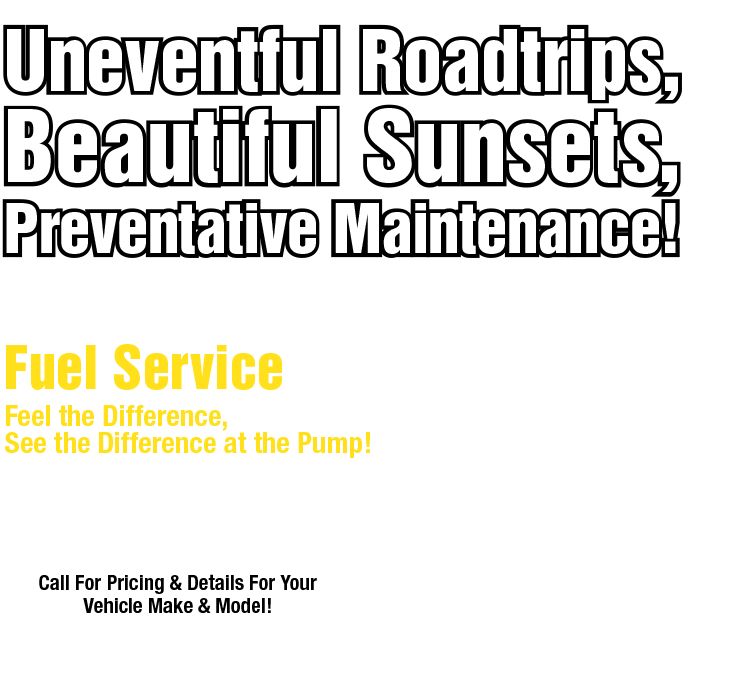Fuel for Thought
February 2, 2020
If you're like most people and drive a gasoline-powered vehicle, you need to be up to speed on its fuel-related components. They're pretty basic: the fuel, the fuel filter and the fuel pump.
The fuel's the easy part. You probably gas up your vehicle yourself and, if you're like most drivers, price is a big factor in what you put in your vehicle. Maybe you think it doesn't matter what kind of gasoline you buy, but one major automobile association has found it does make a big difference.
Their study showed that the additives that are put in different brands can affect your vehicle's performance. Certain gasoline retailers sell gasoline that meets performance standards called Top Tier. The detergents used in Top Tier gasoline help protect newer engines from carbon buildup and deposits on intake valves, all things that can affect how smoothly your engine runs, how it accelerates and what kind of fuel economy you get. You can check online or ask your service advisor where to buy Top Tier gasoline.
Another fairly simple component is the fuel filter. Depending on the age of your vehicle, you either have a separate fuel filter or one that's part of the fuel pump. The fuel filter keeps the crud out of your engine's fuel injectors. You'll get a hint that your fuel filter might be clogged if you notice your vehicle won't start, your power isn't what it used to be, your fuel economy is suffering or your Check Engine light is on.
Check with your service advisor to see what your vehicle manufacturer's recommendations are on how often to service your fuel filter. Regular maintenance can prevent expensive repairs in the future.
Finally, the most complicated part: the fuel pump. As you may have guessed, it is the part that gets the gasoline out of the tank and into the engine. If the fuel pump starts to fail, it can make a clicking or whining noise when your vehicle is running. Your engine may misfire, lose power while driving or might be hard to start in the morning. And that Check Engine light might go on. One thing that helps prolong the life of a fuel pump is keeping your gas tank at least a quarter-tank full at all times. It helps lubricate and cool the pump. If you've detected some of the symptoms of fuel pump failure, tell your service advisor.
Knowing a little about your fuel system really can be a gas!
Need Service?
More articles from Top Tech Auto Repair Clawson

A "Mounting" Problem (Motor Mounts)
February 22, 2026
You know how heavy your engine and transmission are, so you can imagine how tough the parts that hold them onto your vehicle's sub-frame must be. Not only must they support the weight, they also have to isolate vibrations and noise from the passenger cabin. Pretty tall order, wouldn't you say? ... More

Knowledge is Power (Battery Testing)
February 15, 2026
Its likely happened to you once or twice. You head to your vehicle, open the door, turn the key and lo and behold, your battery is dead. Now youre stranded, may have to get a jump or a tow, and youll definitely be late for wherever you were headed. While your vehicle may sometimes give you warni... More

Top Tech Auto Repair Clawson Brake Service for Safe Stopping in Clawson
February 8, 2026
Let's talk about something critical for all Clawson drivers: your brakes. Your vehicle is heavy, and it takes a lot of muscle to bring it and your passengers to a safe stop so everything needs to be in good working order. Here's an explanation on how your disc brakes work: The wheel hub keeps yo... More









